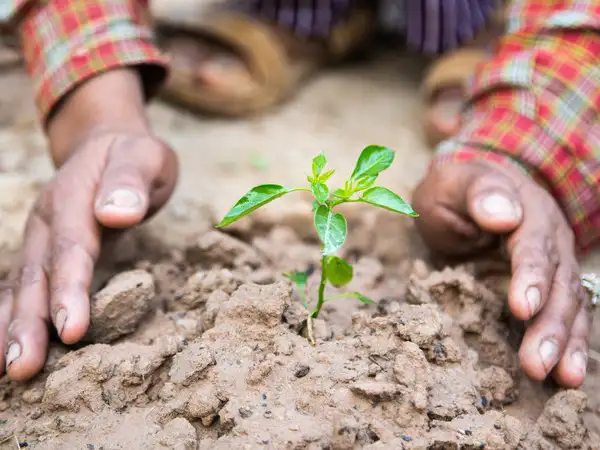Human rights defenders
We're urging the government to introduce a new law that will hold UK companies to account when their activities lead to human rights and environmental abuses.


The IPCC report issues stark warning on climate crisis.
We have ‘a brief and rapidly closing window of opportunity to secure a liveable and sustainable future for all’, states the latest report by the Intergovernmental Panel on Climate Change (IPCC).
Ask your MP to back a Business, Human Rights and Environment Act
The report warns that approximately 3.3 to 3.6 billion people live in regions that are highly vulnerable to climate change. The extent and magnitude of the impacts of the climate crisis are larger than previously thought.
The poorest and most vulnerable communities are hit worst, particularly in Africa, Asia and the small island states. Between 2010 and 2020, people living in highly vulnerable regions have died from floods, droughts and storms fifteen times more than those in less vulnerable ones.
The scientists state that it is not only fossil fuels but also the unsustainable use of natural resources, land, soil and water that are escalating the climate crisis and limiting communities’ abilities to adapt.
Communities that CAFOD works with have been on the frontline of the climate crisis and are experiencing huge impacts on food production and water scarcity.
Bishop of Marsabit, Kenya, Peter Kihara Kariuki, said:
“Today, communities in Marsabit are facing severe drought. They find themselves trekking 17 kilometers to the nearest water source. We must raise our voices and call for ambitious action from world leaders to bring about climate justice by enacting the strongest measures to keep the global temperature rise at 1.5 degrees or below, commit to binding agreements to cut global carbon emissions, and increase support to communities like mine in Marsabit to adapt to the effects of the climate crisis.”
The report sheds light on the reality of adapting to the current, and impending, crises. It warns that,
“The rise in weather and climate extremes has led to some irreversible impacts as natural and human systems are pushed beyond their ability to adapt.”
CAFOD has been helping communities across Africa, Asia and Latin America respond to the climate crisis through its humanitarian and development work, whilst also calling for systemic change to help prevent further destruction to our common home.
The Catholic community in England and Wales continues to push for urgent action in light of the worsening climate crisis. Already this year, thousands of CAFOD supporters have called on over 500 MPs to back a new Business, Human Rights and Environment Act. This legislation will compel all UK registered companies to prevent abuses to human rights and the environment throughout their supply chain.
CAFOD also continues its advocacy work post-COP26, holding the government to account where it falls short of delivering on its commitments made at the UN climate summit in November 2021. Just as this IPPC report reiterates, keeping 1.5C alive will be vital for the future of human life and creation in this century.
Ask your MP to back a Business, Human Rights and Environment Act
We're urging the government to introduce a new law that will hold UK companies to account when their activities lead to human rights and environmental abuses.